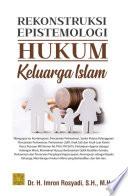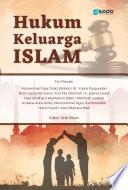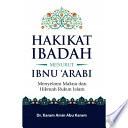Hukum keluarga atau hukum kekeluargaan adalah hukum yang mengatur hubungan hukum yang timbul dari hubungan kekeluargaan. Bagi umat Islam, hukum keluarga menempati kedudukan yang sangat penting sekaligus menjadi bagian yang tidak terpisahkan dalam kehidupan. Politik hukum penjajah yang ingin mengebiri hukum keluarga dan lembaga penegakan hukumnya (pengadilan agama), selalu mendapatkan perlawanan umat Islam dan tidak pernah berhasil. Pasca Indonesia merdeka, regulasi hukum keluarga diatur dalam beberapa peraturan perundang-undangan, seperti UU No. 1 Tahun 1974 yang diubah dengan UU No. 16 Tahun 2019, PP No. 9 Tahun 1975 dan Kompilasi Hukum Islam (KHI). Masyarakat terus berkembang menuju tatanan kehidupan modern yang egaliter, menyebabkan regulasi hukum keluarga dipertanyakan relevansinya dengan kebutuhan saat ini. Beberapa pasal dalam UU Perkawinan bahkan diajukan uji materi ke Mahkamah Konstitusi (MK). Pada sisi lain, perubahan regulasi hukum keluarga harus dilakukan dengan sangat hati-hati, karena masuk wilayah sensitif dan menyangkut keyakinan pemahaman agama (fikih). Selain regulasi yang termuat dalam peraturan perundang-undangan, hukum keluarga juga bersumber dari berbagai kitab fikih melalui kajian al-akhwal al-shashiyah, nidham al-usrah, ahkam al-usrah, dan lain-lain. Literasi fikih memang menghadirkan pengayaan pengetahuan, namun juga melahirkan problem kesenjangan waktu antara perumusan teks fikih dengan kehidupan saat ini. Fikih klasik merupakan hasil “dialogis” antar-nash dan sosio-kultur masyarakat saat itu, sudah barang tentu berbeda dengan sosio-kultur saat ini. Oleh karena itu, dalam beberapa hal perlu dihadirkan reinterpretasi dan bahkan rekonstruksi kembali, agar fikih tetap memliki relevansi dengan kekinian. Buku ini mencoba untuk menawarkan beberapa pemikiran hukum keluarga dalam merespons isu pembaruan. Oleh karena itu, buku ini layak dibaca oleh kalangan akademisi, praktisi hukum, advokat, hakim, peminat hukum keluarga di Indonesia, serta masyarakat pada umumnya. Buku persembahan penerbit PrenadaMedia #Kencana
... keluarga atau hukum kekeluargaan adalah hukum yang mengatur hubungan hukum yang timbul dari hubungan kekeluargaan . Bagi umat Islam , hukum keluarga menempati kedudukan yang sangat penting sekaligus menjadi bagian yang tidak ...










